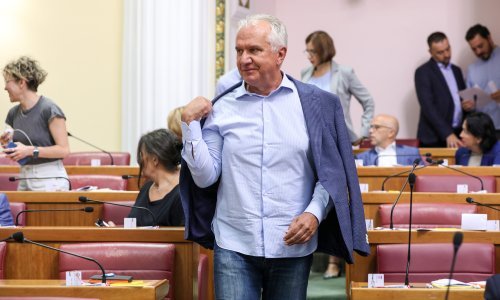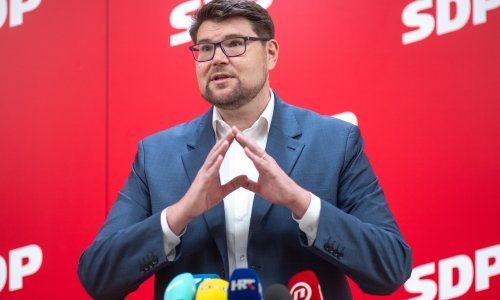Croatian hospital workers, who went on strike at 7am on Wednesday demanding a new collective agreement that would guarantee them higher bonuses for overtime work and on-call and stand-by duty, continued their industrial action on Thursday.
The strike was organised by the doctors' and nurses' unions and is to last until their demands are met. They are seeking reinstatement of the bonuses they lost after the previous collective agreement was annulled by a court in June.
Health Minister Rajko Ostojic has refused their demands, nominally because the earlier collective agreement was unlawful, but actually because there is no money in the budget to meet the unions' demands, for which the government would have to secure 840 million kuna (112 million euros) annually.
The independent union of health and welfare workers did not join the strike because it signed an interim, three-month collective agreement with the government in July, which is still in force. The union of health workers, which has the strongest membership base in Rijeka, did not go on strike either.
The doctors' union has 4,500 members and the nurses' union about 12,000.
On Wednesday evening the Health Ministry and the doctors' union presented different data on the turnout on the first day of the strike, with the ministry saying only 19 per cent of doctors and 16 per cent of nurses took part, while the union said the turnout was 80 per cent.
According to ministry data collected from 74 hospitals by noon Wednesday, the strike did not disrupt in any major way the work in any of them.
In 33 hospitals, no doctor or nurse took part in the strike, the ministry said.
Union president Ivica Babic told the press the turnout was 80 per cent on average - 100% in Dubrovnik, 92% in Cakovec, and 75% in Zagreb's Petrova hospital.
Staff working in primary health care and emergency services are not on strike.
On Thursday, Minister Ostojic insisted that the turnout was low, adding that "a silent majority" among workers in the healthcare sector backed the unions' demands but wanted the unions and the government to sit at the negotiating table and reach an agreement.



































